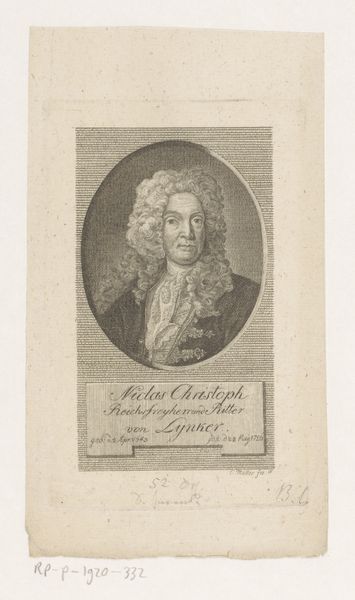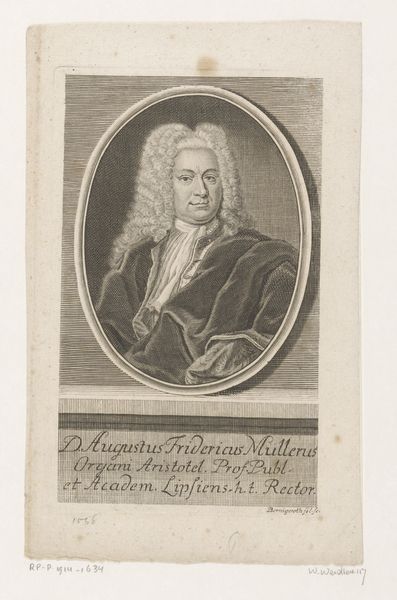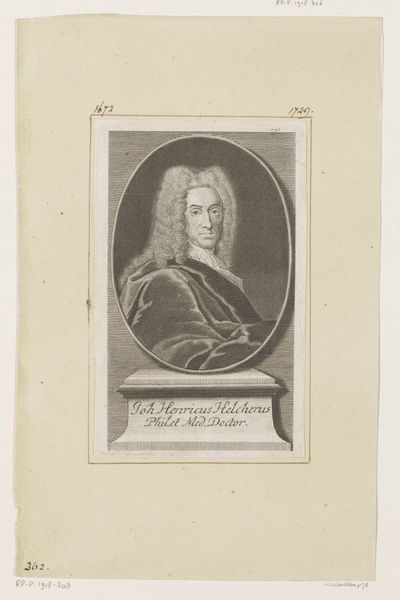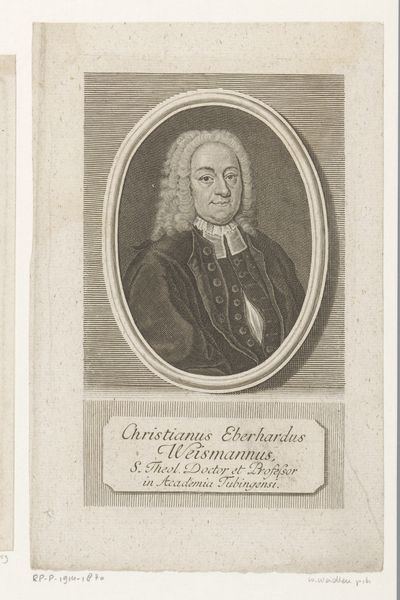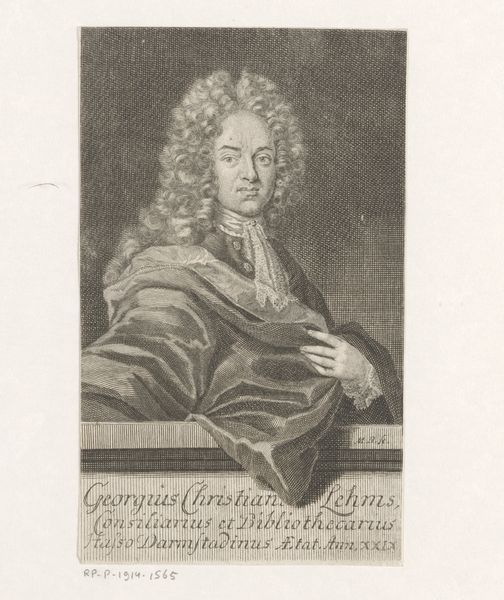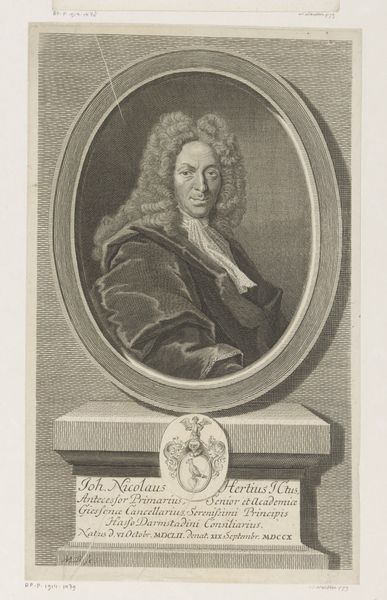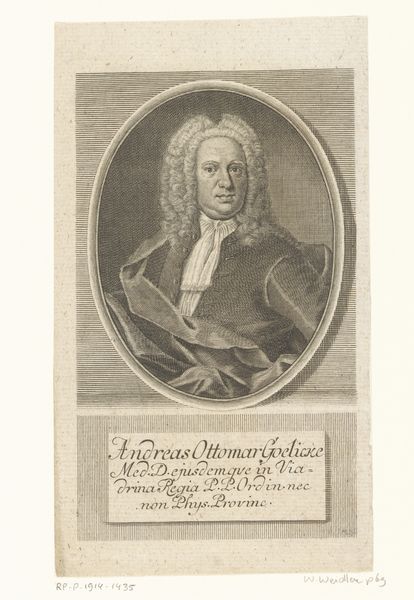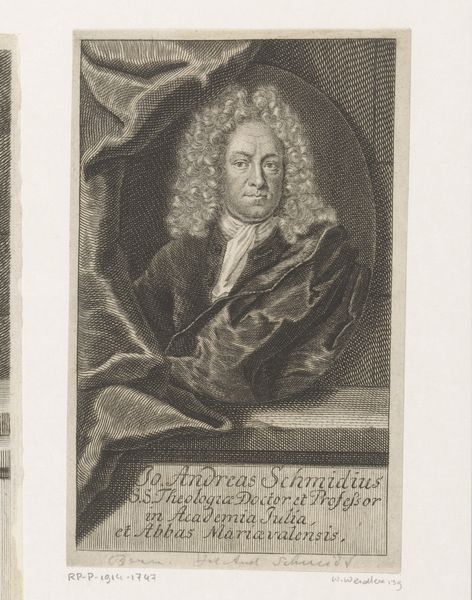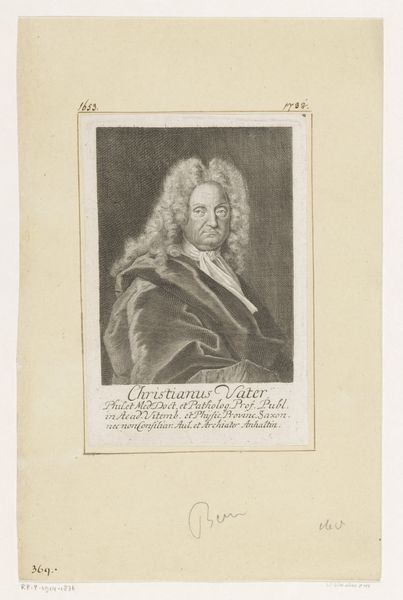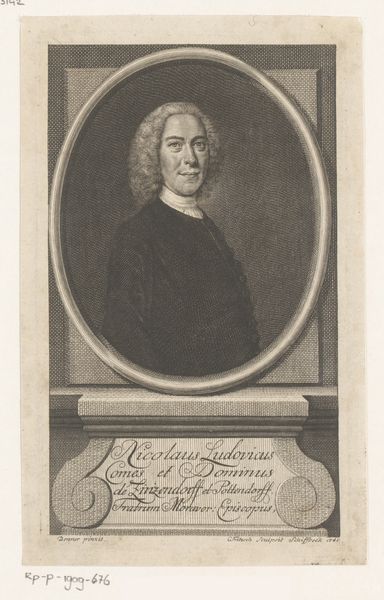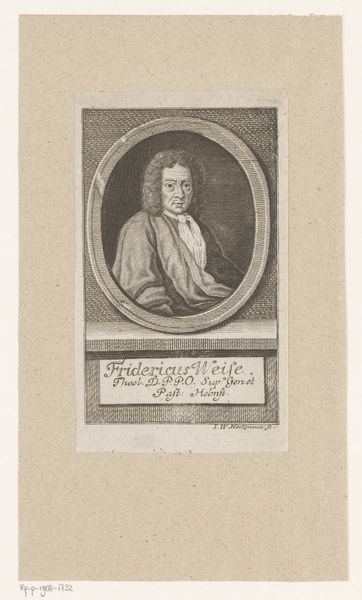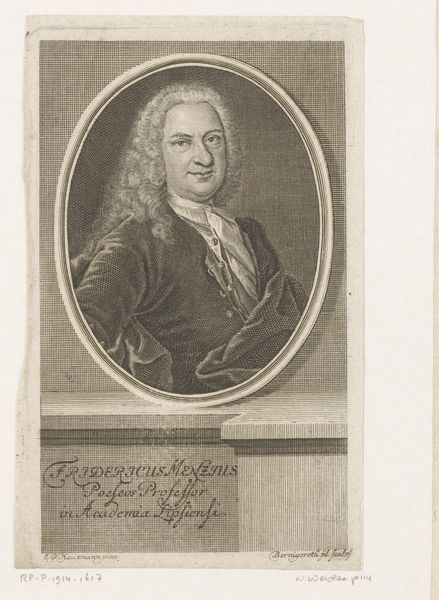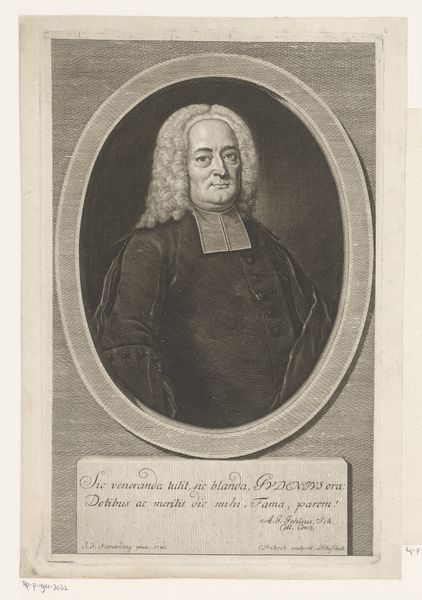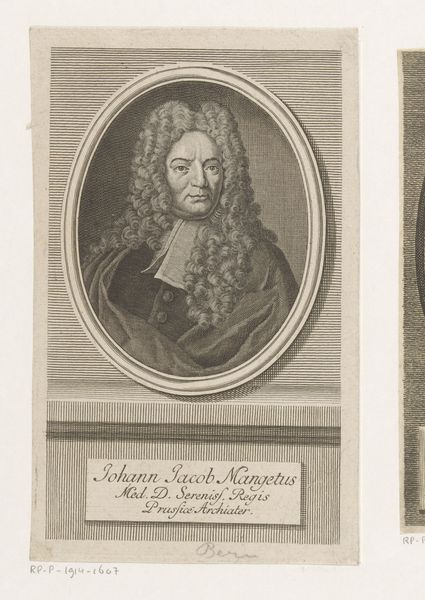
engraving
#
portrait
#
baroque
#
old engraving style
#
line
#
history-painting
#
engraving
Dimensions: height 169 mm, width 99 mm
Copyright: Rijks Museum: Open Domain
Editor: This is a really interesting engraving! It's a portrait of Johann Christian Kundmann made in 1737 by Johann Martin Bernigeroth. The detail is amazing. How did they get such intricate lines back then? What strikes you about it? Curator: What intrigues me is the engraving process itself. The labour involved in creating such an image, each line etched by hand into the metal plate. The Baroque era was really a high point of it. What materials were used? Copper, most likely, given the period and scale. Editor: Copper makes sense. Does the choice of copper influence the artistic message or historical importance? Curator: Absolutely. Copper engraving allowed for a relatively large number of impressions to be made, enabling wider distribution and consumption of the image. It also connects to the world of craftsmanship and trade networks prevalent at the time. Think of the socioeconomic implications! Who was this Johann Christian Kundmann and who could afford such portraits? What stories are behind this doctor, Bernigeroth, and the social circles where these kinds of portraits circulated? Editor: It is really impressive. The image's circulation says as much about it as the portrait. Thanks! Curator: My pleasure. These material aspects often open up so many avenues to explore within the seemingly simple image.
Comments
No comments
Be the first to comment and join the conversation on the ultimate creative platform.
